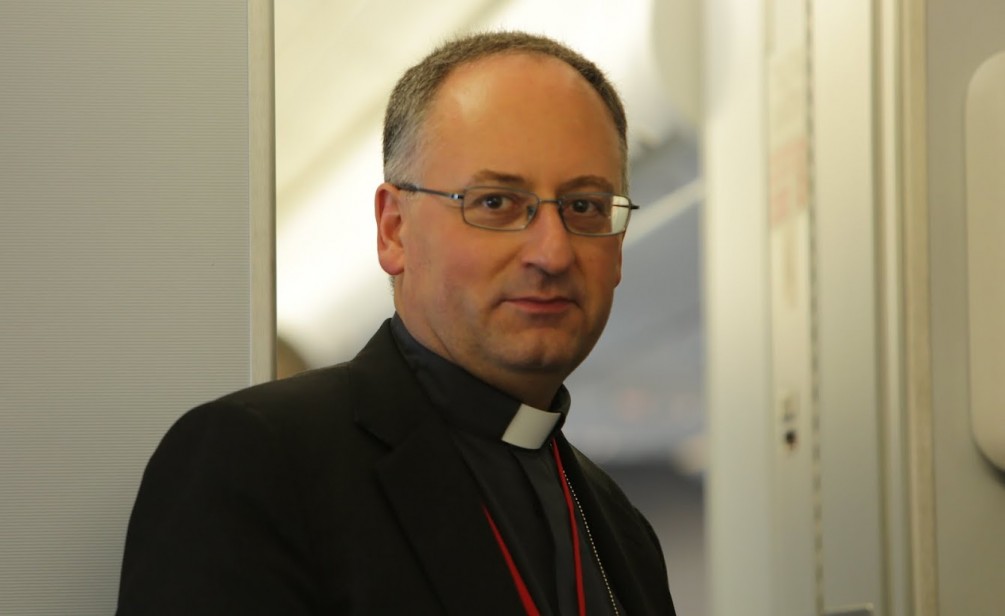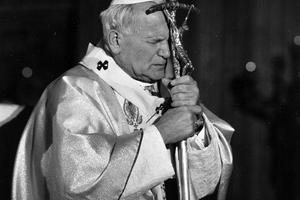Father Spadaro’s 5 Traits of Pope Francis’ Pontificate
Away with rigidity of rules, mechanisms and institutions — welcome instead “incomplete thought”, discernment and mercy, says Jesuit friend of Pope Francis.

Jesuit Father Antonio Spadaro, a close confidant of Pope Francis who stirred controversy by claiming Amoris Laetitia opened the door to Holy Communion for remarried divorcees, has given a candid, personal and quite revealing interpretation of this pontificate — one that prefers to see the world and the Church in constant flux.
In a blog post on his website entitled For Pope Francis the World is Always in Movement: 5 Traits of His Pontificate, the director of the Jesuit periodical La Civilta Cattolica characterizes this era of Francis as first of all a “pontificate of discernment and ‘incomplete thought’”.
For the Pope, the world is “always in movement”, Father Spadaro writes. Francis believes that the “ordinary perspective” which enables us to “classify what is important and what is not, doesn’t work.”
The Jesuit priest says Francis doesn’t have a plan or “road map” based on “ideas or concepts” or “ideological abstractions.” But he does have an “interior vision” that “dialogues with reality”, “sets itself into the history of men and women” and “unfolds in time.”
“This ‘open’ vision gives substance to that which he intends by ‘reform’, that has fire in the heart and not in the structures,” Father Spadaro says.
Such an interpretation explains why Francis would hold two Synods on the Family and throughout the whole process withhold his own definitive opinion, especially on contentious, moral issues that many believed to be settled. It also perhaps explains why in his homily this morning the Pope brazenly suggested that a rigid approach to the faith is “heretical” and that those who say “it’s this or nothing” are not Catholics.
“At times, the Pope opens discourses without however closing them right away or drawing hasty conclusions,” Father Spadaro continues, “thus leaving space to dialogue and debate, even among those who have high ecclesial responsibilities.”
He adds that Francis doesn’t want to teach “a definitive or complete word on every question which affects the Church and the world”, as he said in his apostolic exhortation Evangelii Gaudium. Further quoting from the document, he said “neither the Pope nor the Church have a monopoly on the interpretation of social realities or the proposal of solutions to contemporary problems.”
He goes on to discuss four other traits, most of which the Pope has already explained in Evangelii Gaudium.
The second trait Father Spadaro describes is a dialectical tension between “spirit and institution”, meaning that Francis sees the Church as a “people of pilgrims” who transcend “any institutional expression, however necessary.” This tension “animates Francis’ reflection with regard to that which he has called ‘the conversion of the papacy’.”
For the third trait Spadaro discusses “a pontificate of frontier and challenges” and covers the Pope’s now well known and typically Jesuitical exhortation to go to the peripheries to encounter and accompany those living in difficult situations. “His most radical question,” Father Spadaro says, “is how do we proclaim the Gospel to everyone, whatever is his or her existential condition? This is what really matters.”
The fourth trait covers the Pope’s well known “field hospital” analogy. The Jesuit priest, to whom Francis gave his first major interview in 2013, says the Pope sees the world as “living in warlike conditions” in which many are wounded in need of salvation. The Church has to save these people’s lives, bring them the message of salvation, rather than dwell on issues such as abortion, same-sex “marriage”, and contraception. Such an approach, Father Spadaro says, is aimed not at treating the disease so much as curing it in the context of a “field hospital.” “This is being ‘merciful’,” Spadaro argues. “Mercy means healing.”
Finally, he lists as the fifth trait “a pontificate that has a geopolitical impact.” Father Spadaro demonstrates how the Pope’s message of mercy has been brought to bear on politics and diplomacy, arguably an area where this pontificate, largely due to Francis’ global popularity, has had the greatest success. The core of mercy in this context is that nothing is “lost” in international and domestic relations, he says, and Francis wants to go beyond established networks and “rigid” mechanisms to establish “direct and fluid relationships” and address international crises.
Interestingly, Spadaro interprets this as meaning states shouldn’t engage militarily “for moral reasons” but use a “different optic” that focuses on “building bridges” in the context of a “polyhedric and multipolar vision.”
Father Spadaro closes by returning to what he says at the beginning: “Francis is a Pope,” he says, “who is living his ministry as a ministry of discernment, of ‘incomplete thought.’”
- Keywords:
- father antonio spadaro
- pontificate
- pope francis


















